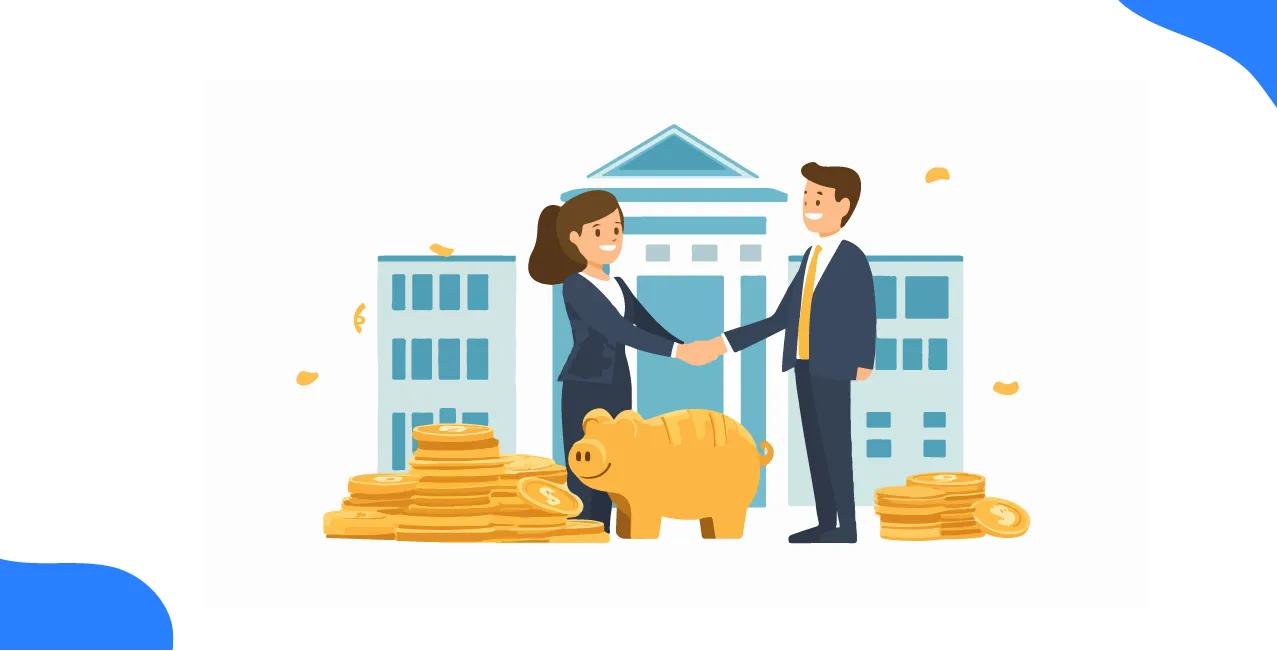What is Share Capital? Meaning, Types & Role in Company Funding

Check Your Loan Eligibility Now
By continuing, you agree to LoansJagat's Credit Report Terms of Use, Terms and Conditions, Privacy Policy, and authorize contact via Call, SMS, Email, or WhatsApp
The share capital is the amount of money which a company earns by issuing shares to individuals. It is giving up a small division of a company's ownership and selling it as a source of money.
Example:
Aman has a biscuit manufacturing company, and he requires funds to expand his business. He subdivides his company into 100 shares with a value of ₹10. He retains 50 shares, and he sells the other 50 shares to his friends and family. Currently, his company has a share capital of ₹1,000 (100 shares × ₹10 each).
Table:
With the help of selling shares, Aman will receive funds to grow his business and give financial control to other people.
Read More – What is a Share? Meaning, Types & How Shareholding Works
Types of Share Capital
Share capital is the money a company receives from selling shares. It can be divided into different types based on how the company issues and manages these shares.
Example:
The biscuit business owned by Aman has expanded, and he is looking forward to additional investors. He learns that share capital may have various categories, and each category has a purpose. This Article helps you to understand all categories, which are:
1. Authorised Share Capital
- The maximum number of shares a company is allowed to issue.
- The company of Aman is legally allowed to provide 200 shares, but currently, only 100 shares have been issued by Aman.
2. Issued Share Capital
- The part of the authorised capital that the company sells to shareholders.
- Aman has already issued 100 shares (50 to himself, 50 to others).
3. Subscribed Share Capital
- The part of the issued shares that people have agreed to buy.
- All 100 shares were bought (no rejections), so subscribed capital = issued capital.
4. Paid-Up Capital
- The actual money received from shareholders.
- If his friends paid the full price ( ₹10 per share), Aman has a paid-up capital of ₹1,000.
Table:
By learning about these types, Aman will be able to handle his company's funding and ownership much better.
Types of Shares in Share Capital
There is no single form of shares to be issued by a company; they are usually different with their advantages and regulations. These shares determine how the owners receive profits, voting rights, as well as repayments in case of the closure of the company.
Example:
Aman biscuit factory is doing well. Now he wants new investors, but wants to keep control. He learns about different share types to effectively divide ownership.
1. Equity Shares (Ordinary Shares)
- The most common type gives voting rights
- Owners get dividends if the company makes a profit
- Higher risk but higher growth potential
- Aman keeps 40 equity shares to maintain control
2. Preference Shares
- Fixed dividend (paid before equity shareholders)
- No voting rights
- Safer fund for those who like to take a steady approach.
- Aman issues 10 preference shares to his retired uncle
3. Redeemable Shares
- The company can buy back after a fixed period
- Helps manage cash flow flexibly
- Aman creates 5 redeemable shares for short-term investors
4. Sweat Equity Shares
- Given to employees for their hard work
- Motivates the team without cash payment
- Aman issues 5 sweat equity shares to his top baker
Table:
This structure helps Aman to grow his business and stay in control by rewarding contributors.
Role of Share Capital in Company Funding
Also Read -How to Buy Shares – Beginner’s Step-by-Step Guide
The share capital is the basis of funding for the company. This facilitates providing permanent money to expand the business without taking a loan.
Example:
Aman Biscuit Company requires ₹50,000 to purchase new machines and hire staff for more production. He chooses to issue shares to raise money instead of borrowing.
Key Roles of Share Capital:
- Startup Funding
- Initial money to begin operations
- Aman raised ₹10,000 by selling his first 100 shares
- Business Expansion
- Funds for growth without any debt pressure
- New ₹40,000 from investors buys baking machines
- Ownership Distribution
- Shares control when keeping profits
- Aman keeps 60% shares, sells 40% to others
- Creditworthiness
- More share capital means better loan terms
- Banks trust Aman's with a ₹50,000 capital base
Table:
Share capital enables Aman to develop sustainably as well as to share success with the investors. The higher the value of his company, the more valuable his stocks.
Conclusion
Share capital is the blood of any expanding business, and the biscuit company owned by Aman is the best example of how it can work. Through the sale of his company in terms of shares, Aman obtained the finances he required to scale up, but without having a loan. He maintained control of the majority of shares and allowed friends and family to invest in his success.
The various types of shares, such as equity shares to cast their voting rights and preference shares acquired by safer investors, were useful in the smart structuring of ownership on his part.
Eventually, as his business expanded, so did the worth of each person's shares. Share capital not only allows Aman to buy ovens and ingredients, but it also transformed his small bakery into a real business with relevant support. Most importantly, it gave birth to a fair system whereby everybody who contributed to the development of the company could have a share in its profits.
Aman's shows that it makes sense to bake biscuits as well as to create any business, by issuing share capital that will allow everybody, including yourself, to expand, but also serve the interests of all.
FAQs
What is share capital?
Share capital is money a company gets by selling ownership shares. Like when Aman sold parts of his biscuit company to raise funds.
Why do companies need share capital?
It helps businesses grow without loans. Aman used it to buy ovens and ingredients for his biscuit factory.
Who can buy shares in a company?
Anyone the company approves, friends, family, or investors. Aman first offered shares to people he trusted.
What's the difference between equity and preference shares?
Equity shares give voting rights but risky profits. Preference shares give fixed dividends but no voting power.
How do shareholders make money?
Through dividends (profit shares) or by selling shares at higher prices. Aman's investors earn when his biscuits sell well.
Can a company take back shares?
Only special "redeemable shares" can be bought back. Aman kept this option for some investors.
What happens if the company fails?
Shareholders lose money after paying debts. If Aman's biscuit company closes, banks get paid first.
How many shares should a company issue?
Enough to raise needed funds without losing control. Aman kept 60% shares to remain the main decision-maker.
Do shareholders work in the company?
Not usually, they're just investors. Aman's aunt owns shares but doesn't bake biscuits.
How do shares increase in value?
When the company grows and becomes more profitable. Aman's shares became worth more as his biscuit business expanded.
Other Informative Pages | |||
About the author

LoansJagat Team
Contributor‘Simplify Finance for Everyone.’ This is the common goal of our team, as we try to explain any topic with relatable examples. From personal to business finance, managing EMIs to becoming debt-free, we do extensive research on each and every parameter, so you don’t have to. Scroll up and have a look at what 15+ years of experience in the BFSI sector looks like.
Subscribe Now
Related Blog Post

Salaried vs. Self-Employed: Who Gets a Personal Loan Faster in 2025?

Too Many EMIs? What to Do When Monthly Payments Become Unmanageable

Post Office Customer Care Number: Helpline & Support
Recent Blogs
All Topics
Contents
Quick Apply Loan
Consolidate your debts into one easy EMI.
Takes less than 2 minutes. No paperwork.
10 Lakhs+
Trusted Customers
2000 Cr+
Loans Disbursed
4.7/5
Google Reviews
20+
Banks & NBFCs Offers
Other services mentioned in this article





